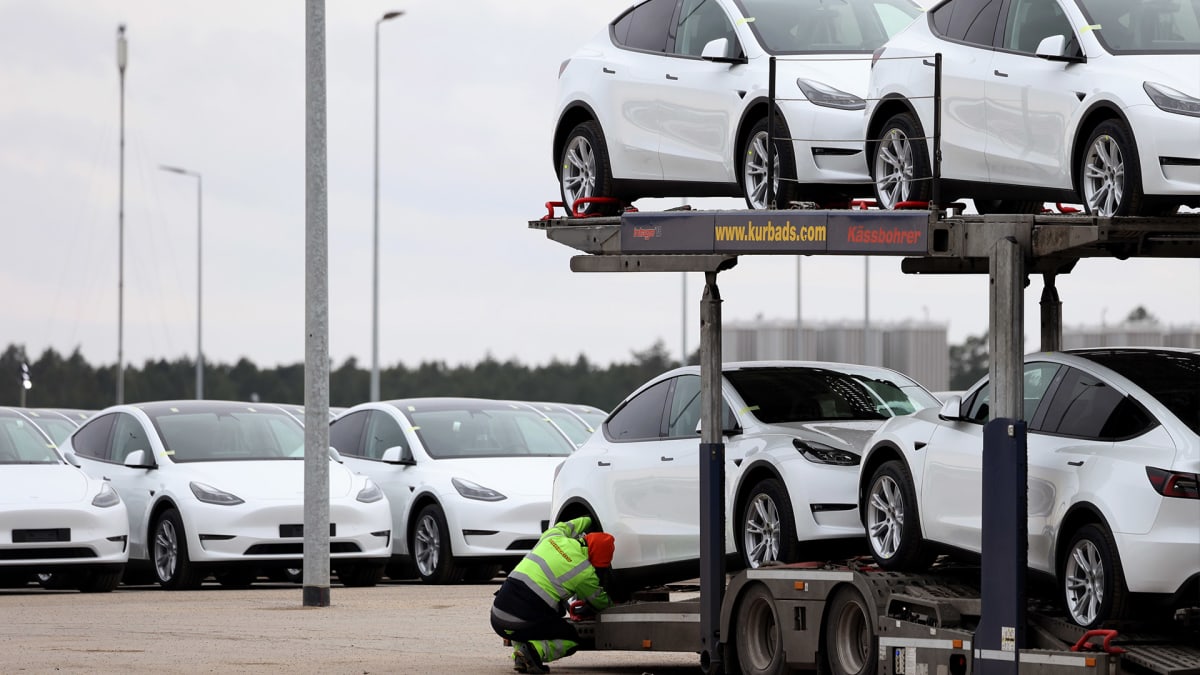
Well, there's good news for some drivers.
The Inflation Reduction Act, which was passed in August, provided tax incentives and various subsidies to encourage manufacturers to build products that produce lower emissions.
Now with the act’s new battery sourcing rules set to take effect April 18, most electric vehicle owners will see their $7,500 tax cut in half or removed entirely.
The new rules are aimed at reducing U.S. dependence on China and other countries for battery supply chains for electric vehicles.
Out of six Ford (F) vehicles, just the F-150 Lightning pickup truck and Lincoln Aviator Grand Touring will still be eligible for a $7,500 credit, according to Reuters.
“Customers made Ford the No. 2 electric vehicle brand in the U.S. last year, and as we scale our production to build more EVs for more customers, we believe this new incentive eligibility will help even more Americans join the EV revolution,” Marin Gjaja, chief customer officer, Model e, said in a statement.
Jeep Tax Credits Cut
The other models currently getting credits - Ford Mustang Mach-E, Ford E-Transit, Ford Escape Plug-In Hybrid and Lincoln Corsair Grand Touring - will see credits drop to $3,750.
Stellantis (STLA) said of its three plug-in hybrid electric models, its Chrysler Pacifica plug-in electric hybrid will qualify for $7,500 tax credits after April 18, while the Jeep Grand Cherokee 4xe and Jeep Wrangler 4xe qualify for just $3,750.
General Motors (GM) said it expects some electric vehicles (EVs) will qualify for the $7,500 tax credit after the new guidance takes effect including the Cadillac Lyriq and the forthcoming Chevrolet Equinox EV SUV and Blazer EV SUV.
GM currently receives that amount for the Chevrolet Bolt and the forthcoming Chevrolet Silverado EV would have been eligible. The automaker said it expects Bolt vehicles to still qualify for some level of credit.
Meanwhile, Tesla (TSLA) said the Model 3 rear-wheel drive credit will be reduced as a result of the guidance, since the vehicle uses a battery made in China.
All U.S. EV consumer tax credits require vehicles to be assembled in North America and have income and retail price caps.







